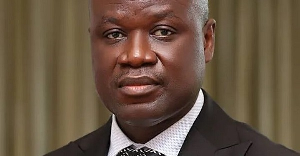The Chief Executive Officer of the Ghana National Chamber of Commerce and Industry (GNCCI), Mark Badu-Aboagye, has cautioned that the newly launched 24-hour economy policy, championed by former President John Mahama and the National Democratic Congress (NDC), will struggle to take root unless critical issues confronting Ghana’s business environment are urgently addressed.
Speaking on PM Express on JoyNews on Monday, July 7, Mr. Badu-Aboagye welcomed the policy’s intentions but said launching it in the current economic climate without fixing structural barriers is putting the cart before the horse.
“Launching a 24-hour economy will not change the harsh business environment that we are facing now,” he stated candidly during the interview.
Reacting to recent improvements in inflation, exchange rate stability, and rising business confidence, the GNCCI CEO said these gains are encouraging but insufficient to drive the kind of structural transformation needed to make a 24-hour economy viable.
“This is a safe space for us to possibly start accepting a 24-hour economy. It is a good start, but it’s not enough,” he said. “Having inflation down to 13.7% is a necessary condition, but not sufficient to change the structure of the economy.”
He argued that for businesses to benefit meaningfully from macroeconomic gains, the impact must be felt in reduced operational costs, particularly in access to affordable credit, utility bills, and energy costs.
Mr. Badu-Aboagye noted that energy costs in Ghana remain among the highest in Africa for manufacturers, with the cost of electricity per kilowatt hour ranging from 12 to 15 cents—compared to less than five cents in competing economies.
“If you really want to manufacture more, we need to bring down the cost of utility, and then the cost of credit,” he said, warning that high energy prices continue to erode the competitiveness of local producers.
He also drew attention to Ghana’s policy rate, currently at 28%, which results in commercial interest rates exceeding 30%. According to him, this rate environment is a disincentive to investment, especially in manufacturing and exports.
“No company would want to manufacture and export or be competitive under this condition,” he stated.
The GNCCI CEO stressed that if the 24-hour economy is truly aimed at accelerating exports—as suggested by the NDC—then the core focus should be on enhancing competitiveness.
“The 24-hour economy is not only for local consumption,” he said. “If it’s for local consumption, then we don’t need a 24-hour economy, because we can produce enough to feed ourselves. We want to export—that is why accelerated export is a component of the 24-hour economy.”
He cautioned that international buyers are not swayed by policy slogans or political rhetoric but by price and quality.
“When you send your product abroad, people will not buy it because it’s coming from Ghana or because you have launched a 24-hour economy,” he asserted. “They will buy your product because one, it is competitive, and two, it is of high quality.”
Mr. Badu-Aboagye concluded that for the 24-hour economy to move beyond a political catchphrase and deliver real economic value, government must leverage current macroeconomic improvements—such as falling inflation and cedi appreciation—to reduce policy rates, lower utility costs, and increase access to credit for businesses.
“Let’s look at how the improvements we are seeing now—the lower inflation and the cedi appreciation—will impact on the policy rate,” he urged.

